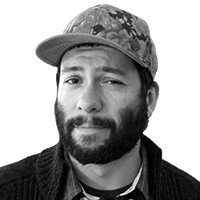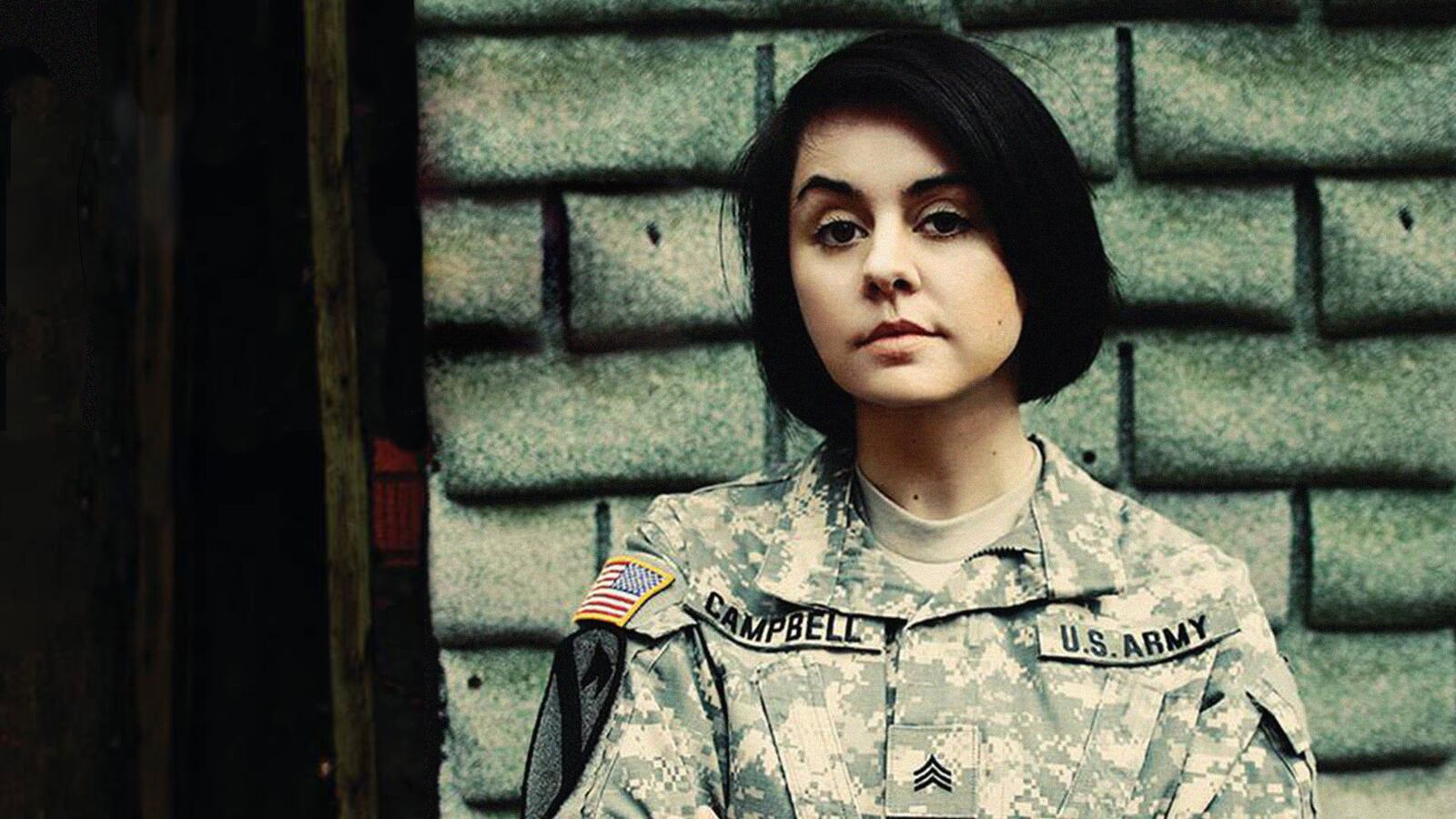It’s no secret that the combination of rhythm and harmony and lyrics can be a coercive force. People have been using music to subvert the masses for millennia, from Samuel Adams in the Revolutionary War to the Hitler Youth in Nazi Germany.
Nowadays, pop music is the product itself, and it works. This is why Tipper Gore and her posse of frothing, overbearing politicians’ wives fought two decades ago to make “explicit” music harder to get, or even banned.
But we expect the worst from pop music, right? Everyone knows there’s way more concern with the “popular” part than the actual “music.” That’s why those with discerning tastes turn to the pure audio bliss of indie music, to let their ears breathe a sigh of ulterior-motive free relief as they move and groove to the bands whose names will never make it much past the third tier of the music festival posters. It was safe down there, at least until now.
Now there’s an infiltrator in the indie midst, one who is specially trained to be all she can be.
Meet Corrine Campbell, the United States Army’s official indie rock artist.
Yes, you heard that right.
Campbell, her band, sound guy, and whatever other crew she rolls with are all enlisted, active members of our armed forces. But instead of fighting for freedom overseas or preparing to kick ISIS ass training on a base somewhere, they are touring the country, playing original pop-punk jams for audiences at high schools and fairs, the occasional club, and, of course, music festivals. They are, for example, on the bill for this summer’s bastion of teenage rebellion, extreme sports, and rock ’n’ roll, the Vans Warped Tour.
Campbell says she was first “discovered” by the Army after playing a slightly less in-your-face festival.
“We did Lilith Fair in 2010, put out our first full length, and people were actually buying the album and stuff, and I thought, ‘Wow, this is cool,’ because I didn’t really expect that to happen,” she tells The Daily Beast on the phone. “And then I got on enough [Army] radars and they were like ‘Why don’t you come and do this for us in an official capacity?’ And I talk about my time in the service anyway, as part of who I am. So now I work for Army Marketing out of Fort Knox.”
The brass in the military marketing department see the value of having a cherubic, passionate, positive punk rocker plying their wares to the public, and have her working the music scene like any other campaign.
“I tour probably about 300 days a year,” Campbell says, laughing, and it’s hard not to immediately like her. “We play at high schools and music festivals, sporting events, colleges, that type of thing. I do a mix of music that I’ve written and recorded prior to having this job and some covers as well, radio hits and stuff. And just talk to people. Say, ‘Hey, this is something different than you see typically about the Army.’ I just have a good time meeting a lot of people. And whether that ends up with them wanting to join, it changes their perception.”
Campbell is only for the civilians, by the way. “I never perform for military,” she says.
So even if the moshing masses in the audience don’t immediately line up for boot camp, that’s not the point. The Army has more people than they know what to do with. Campbell et al are fighting a cultural war. They want hearts and minds, not bodies.
“That’s our goal: just break down the barriers of the preconception about military service that’s been really present in the media in the last 10 years or so,” she explains, before noting the idea is to show a softer side of the Army, rather than the shaved head, spit-polished, infantry stereotypes. “I think there’s a lot of disconnect between what the media is putting out there and just the actual human that is wearing a uniform, you know? We want to personalize the service person again; make them real.”
Because joining the military is, like, chill, man.
She does, of course, let people know that she’s with the military when she performs. It’s not like she went and opened for Fall Out Boy and didn’t tell anyone what was up. But she does bide her time, and, like any seasoned musician, take the room’s temperature.
“I let them get a vibe for what they think about the music first,” she says. “I definitely don’t want the music to be contingent on exploiting anyone’s patriotism. It’s really easy to use the uniform to gain acceptance, and I want people to feel something genuine about it, whether they hate it or love it. And if they love it, then I get to say, ‘You know, the Army has allowed me to do this for a living, and they have a ton of other jobs that aren’t what you would expect.’ Show that originality does still exist, that the uniform doesn’t blur out who I am, you know?”
And if they hate her?
“We do let people know for sure before we get off the stage who we are. My whole band is active duty, so we do make sure there’s no misconceptions about that.”
Campbell also has a full line of hopefully hip Army-produced merch, just like your favorite band.
“We don’t want to show up at Warped Tour and just make people do pushups or whatever people are expecting from the Army, you know? We want to actually be part of the party and community, and we’re bringing in stuff that makes sense for that crowd," she says. "If you give out pens that say ‘Army,’ I mean, most people don’t even write anymore! We want to make sure to bring stuff that’s cool. We’ll have ear buds, T-shirts, CDs, water bottles.”
They’ll also be giving out customized Army dog tags. All of it for free. In fact, they don’t even charge to perform.
“We play for free. We can’t generate revenue of any kind. We’re essentially on government dollars,” she says. She’s on the military payroll, she says, and everything she and her crew do comes from taxpayer-funded military marketing and outreach budgets.
As any artist will tell you, the constant touring can take a toll. And so it is that Campbell is phasing out of her roll as “Featured Performer of Army Musical Outreach” and seguing back to civilian life, spawning an American Idol-like search for her successor.
“The luggage life gets a little old,” she says. “Touring 300 days a year is aggressive even for someone doing it full time on the Outside. I always said that I would do it until I got tired or it wasn’t fun anymore, so I guess I just hit a point where I thought, ‘OK, this has been really cool, but I want someone else to get the opportunity.’ It can be kind of a challenge, honestly, being a musician who is not signed to a label, but in essence it’s like being signed to the label of the Army.”
The Army as a record label? Why not? It’s a role they seem to be enjoying, and even expanding.
“What we’re hoping to do is bring somebody on in the next six months or so. And I’m gonna write for, or co-write with, the next selectee, and the Army’s gonna record their album with a great studio in LA and try to develop them as an artist.”
There you have it. Someone, or a group of people, in a drab military base will be working to cultivate and launch a new artist, with the goal of successfully infiltrating the mainstream music scene. Campbell is, naturally, a huge fan of this concept, even donating her own creative output to further the program.
“All the music that they have that is my ownership right now I license for free just to enable this program,” she says. “I knew that if it had this hefty price tag it would be really hard to justify that to taxpayers. And so I gave them my music, I licensed it to them for the time that I was in this job, and then they’ll own those recordings so they can use it for the next guy.”
Whomever this next military minstrel will have to go through what she went through—a screening process for somebody marketable, somebody (potentially creepily) on-brand, who can make enlisting yourself to potentially die for your country seem as rad and easy as going to the Warped Tour.
“It’s a nominative position, there’s a whole screening process,” she says, and then chuckles. “I have a feeling that I actually won’t have any direct choosing role at all. The people who are going to be picking them are the people who are in charge of marketing, ’cause they know what they’re looking for. What we’re trying to do is create an organic artist who’s really a soldier. We’re trying to find an authentic way to use the language of music to communicate a new message to people.”






